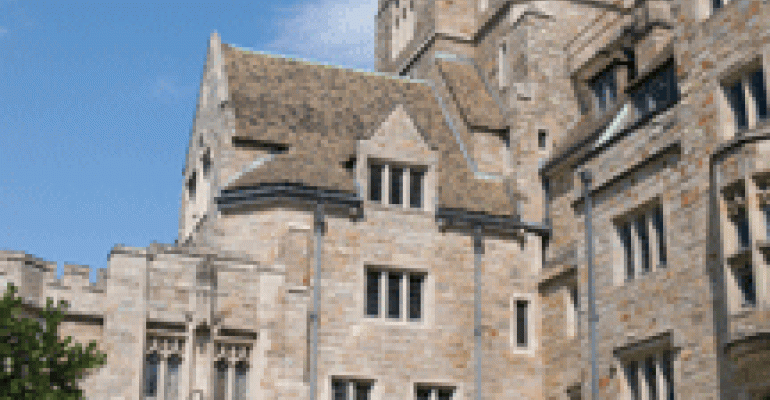
Do you need to attend an Ivy League school to make it big on Wall Street or Main Street? You might think so, and chances are that many of your affluent clients believe it too. This ingrained belief so many of us have that Ivy League grads enjoy a lock on the best high-paying jobs just isn't true.
At least that's one of the fascinating conclusions of new research by a pair of economists who created a commotion nearly a decade ago when they first compared the earnings of undergraduates of Ivy League schools and other elite institutions such as Swarthmore, Duke and Stanford with bright graduates of less prestigious schools.
Alan B. Krueger, a Princeton economist, and Stacy Dale of Mathematica Policy Research, conducted the original bombshell research, which has been cited countless times over the years by people who believe that America's veneration of all things Ivy League is excessive. Thanks to the updated research, these skeptics now possess even greater ammunition against the Ivy worshippers.
To appreciate why the latest findings are so compelling, you need some background on the original research.
In their landmark study, Dale and Krueger discovered that the average earnings of Ivy Leagues graduates were similar to the average earnings of students who were accepted to one or more Ivy Leagues schools, but who chose to attend a less selective school. If a student got accepted to Columbia University, for example, but decided to attend Penn State or Xavier University in Cincinnati, the graduate was very likely to enjoy the same kind of earnings power.
This finding shocked a lot of people who assumed that the Ivies and other elite schools provide a superior education or at least offer students access to amazing networking opportunities that aren't available on other campuses. The research, however, suggested that high-achieving students are likely to enjoy the same earnings success regardless of where they obtain their bachelor's degrees.
In other words, the secret ingredient to financial success is not the elite colleges themselves, but the caliber of the students that these schools attract — whether or not they attend. I've always thought that you could lock a bright, ambitious freshman in a closet at Harvard and that student would emerge four years later with promising career prospects. Harvard and the other elite schools get way too much credit for the undergrads they produce.
The original research was based on 1995 earnings of students who graduated in 1976. In revisiting the issue, the economists cast a wider net by looking not just at what happened to those original graduates, who are now in their 50s, but also to a larger cohort of Americans who were college freshmen in 1989.
In the follow-up study, the earnings parity for Baby Boomers who spurned Ivy League institutions in the 1970s, and those who did attend these schools, remained strong.
The researchers detected an even more amazing earnings phenomenon for the younger crop of college graduates that they studied. The economists concluded that students who possessed Ivy League-worthy standardized test scores, but were rejected by these elite schools, still managed to enjoy the same kind of earnings success as students who did receive their undergraduate degrees from the colleges at the top of the food chain.
“The highest-ranked school that rejected a student is a much stronger predictor of that student's subsequent earnings than the average SAT score of the school the student actually attend,” the study observed.
This actually makes sense if you think about it. The sort of students who apply to schools like Dartmouth or Williams are an elite self-selecting group. The students who aim this high are not only intelligent, but typically motivated, passionate and just plain talented. All are traits that can boost graduates' chances of success in a future career regardless of where they earn their degree.
In an email exchange I had with Krueger, the economist noted: “Students who apply to, and are accepted by, elite schools are likely to be high achievers. High-achieving students are likely to have high earnings regardless of where they go to school.”
There are some notable exceptions to the findings that smart students who apply to elite schools can make Ivy-comparable salaries regardless of their alma mater. Black, Hispanic and low-income students, as well as students with parents without a college education do appear to benefit from attending Ivy League schools.
Krueger offered this explanation: “While most students who apply to selective colleges may be able to rely on their families and friends to provide job-networking opportunities, networking opportunities that become available from attending a selective college may be particularly valuable for black and Hispanic students and for students who come from families with a lower level of parental education.”
Bottom Line:
Tell your clients who are stressed about college that getting rejected from a phenomenal school could be their teenager's ticket to future financial success.
WRITER'S BIO:
Lynn O'Shaughnessy is a college consultant, author and speaker. She writes three college blogs for CBSMoneyWatch, U.S. News & World Report and TheCollegeSolutionBlog.com.





